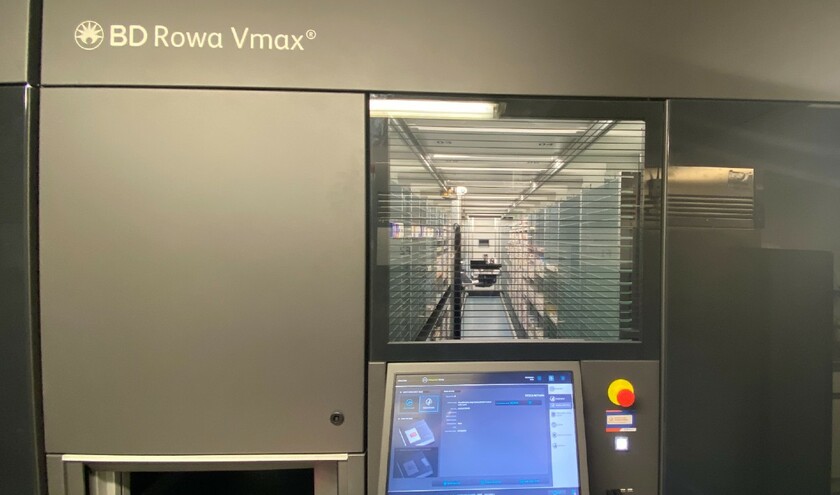The robots work faster, can store nearly twice as many medicines, and hold more detailed information about each item, including production and expiry dates.
The upgrade means patients will receive their medicines much quicker, reducing delays and will help the hospital to maintain its stock of life-saving medications. Items with earlier expiry dates will be used first, reducing waste, and in case of recalls, specific batches can be easily identified.
In addition, the robots decide the best location to store each medicine based on its demand, ensuring quicker dispensing times. When orders are not being processed, the machines automatically reorganise items, making room for as many medicines as possible.
For staff, this will significantly save time, as medicines now can be scanned in bulk rather than one by one.
Nina Webb, pharmacy operations manager at Mid and South Essex NHS Foundation Trust, said: ‘The new robots will hugely improve our ability to accurately dispense medicines, reducing the need for manual picking from shelves and helping them to reach patients in the wards more quickly.
‘This will also help create a much more efficient working environment for our colleagues.'



